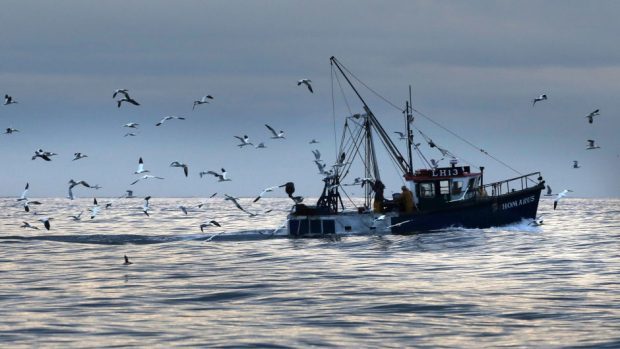A move away from fishing quotas towards limited days at sea has been ruled out by a Scottish Government fishing boss.
The argument for limiting time rather than actual fish was a key plank of Brexit group Fishing For Leave’s campaign.
North-east MSP Peter Chapman, Conservative rural affairs spokesman, asked at Holyrood’s rural economy committee whether ministers would back a move away from quotas.
He said: “Using days at sea to regulate the amount of fish take could go down a different route entirely.”
Rural economy minister Fergus Ewing said he was open to different options but deferred to his head of fisheries.
Mr Ewing said: “Some system to make sure fishing stocks are not over-fished is key but there are different strategies that can be pursued.”
Sea Fisheries Division head Allan Gibb picked up and said a reduction in days at sea was unlikely to be pursued.
He said: “There are other options such as credits for fishing.
“I would emphasise they’re very complicated in mixed fisheries like the north sea.
“We have to look at your weakest stock – you can’t just go out and have unlimited fishing.
“A days at sea only solution is unlikely to fit the mixed fisheries we have in the north sea.”
Speaking afterwards, Mr Chapman said he was disappointed by the negative tone of the discussion.
He said: “I heard no vision whatsoever about the future of agriculture in Scotland post-Brexit. It is all negative, negative, negative.
“This does not reflect the attitude of the people out there in our farming and fishing industries.
“Of course there are challenges, but those I speak to – whether they voted for Brexit or not – just want to get on with it and make the best of the opportunities presented.”
Scottish Fishermen’s Federation chief executive Bertie Armstrong said limiting days at sea had been trialled and abandoned early because it did not work.
He said: “It’s a complete non-starter, just not an option at all.
“We’re a long way from talking about the nuts and bolts of fisheries management but, regrettably, this has been tried and it didn’t work.
“It doesn’t bear any inspection as a sensible method of managing fisheries.”
Mr Armstrong said quotas must be part of a sustainable fishing strategy.
He said: “There’s no escape from quotas.
“Quotas are not a bad thing, it’s just they’ve been ridiculously distributed with common access and that is very wrong indeed.
“Inescapably, the science of each and every fish stock will determine how much we can take and when it’s finished you have to stop.”
